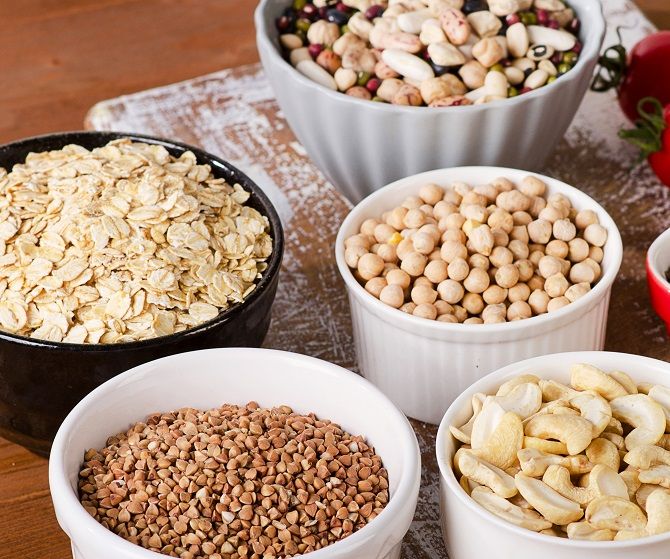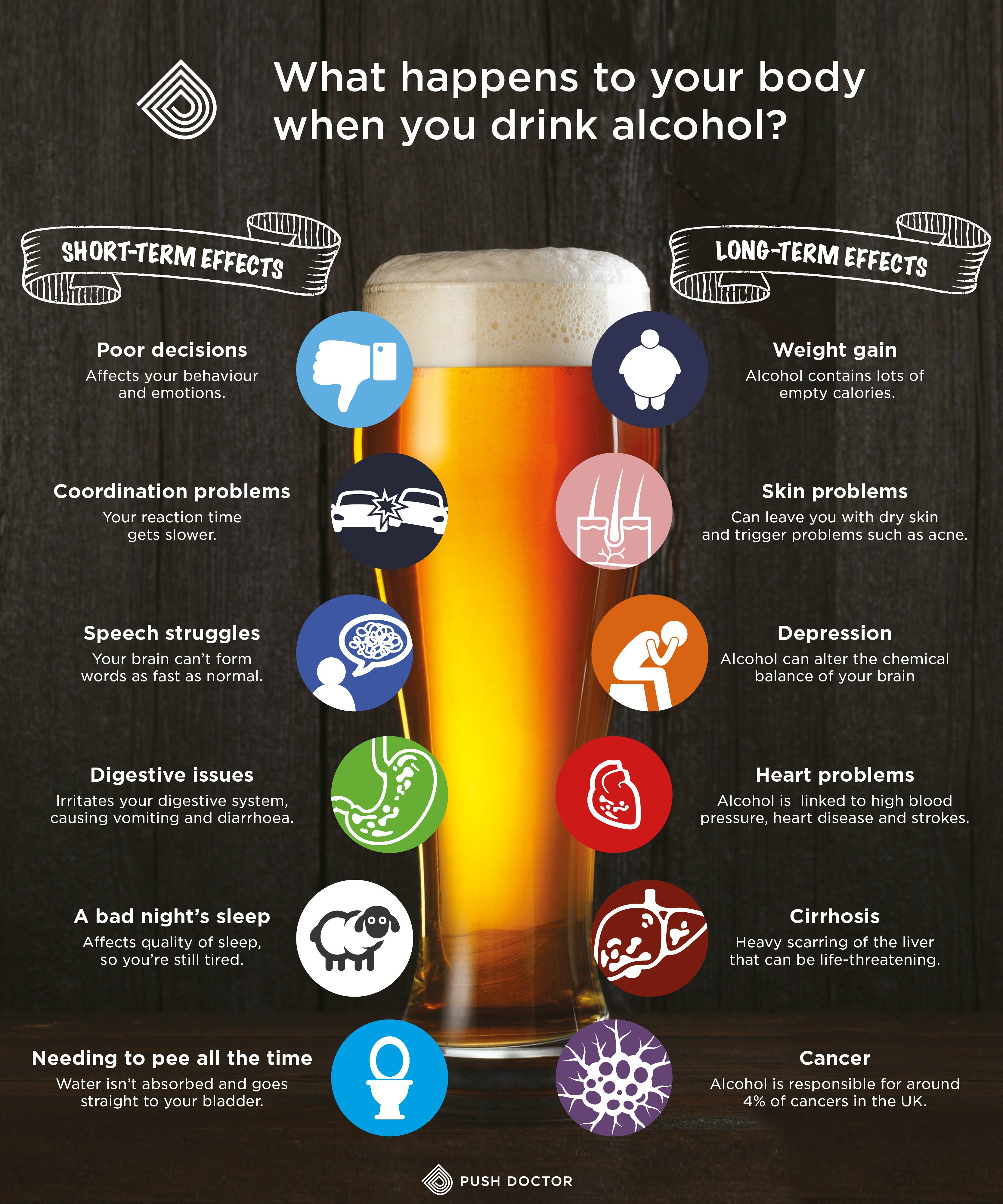By Push Doctor
How Much Water Should You Drink?
We all know it's important to stay hydrated. Your body is around 60% water, so it's essential to keep your H20 levels topped up throughout the day. Not getting enough water can lead to serious health issues.
We've asked our experienced doctors to confirm exactly how much water you should drink and explain what happens if you don't get enough. Choose a question from the list below to get the answers you need.
How much water should you drink in a day?
How much water should your child drink?
Why should you drink water?
How can you get the water you need?
Is it possible to drink too much water?
How do you stay hydrated in hot weather?
How much water should you drink in a day?
Most of you will be familiar with the advice to drink eight glasses of water per day. This remains the official health position in the UK, with the government's Eatwell guidelines recommending six to eight glasses.
Here's the problem. A 'glass' isn't a standard unit of measurement. Chances are, you have glasses of different shapes and sizes in your home. Which glass should you use?
It's easier to measure your water intake in more practical terms. Eight glasses is around two litres, or three and a half pints. This is enough to replace the water your body loses every day through processes such as sweating, urinating and breathing.
Of course, this is just a guideline. There are certain factors that can influence the amount of water you need. For example, if you exercise regularly, or it's a hot day, you'll require more water than normal.
How much water should your child drink?
Children have a higher ratio of water in their bodies than adults, which makes staying hydrated even more important for them. According to the British Nutrition Foundation, it also means that even though they're smaller, children still need the same amount of water as adults.
It's important to monitor your child's water intake carefully and ensure they're regularly rehydrating. This is especially true during the summer when the weather is warmer, or if your child spends a lot of their day running around.
Why should you drink water?
The short answer is pretty simple. You need water to stay alive. However, we're going to dig a little deeper and look at what water actually does for your body, as well as what can happen if you don't get enough.
Water protects you from serious health issues
A 2010 study from the British Nutrition Foundation linked poor hydration to a wide variety of serious health issues, including:
- Heat exhaustion and heat stroke
- Heart disease
- Lung problems
- Kidney disease
- Bladder and colon cancer
- Dental issues
The researchers also found a relationship between low fluid intake and increased mortality rates among older adults.
Water helps your body perform basic functions
Water does so many important things for your body. You probably don't even think about them most of the time. It keeps your eyes moist, lubricates your joints and helps with digestion and waste removal. If any of these processes went wrong, chances are you'd notice!
Then there's sweat. Sweat isn't always your friend. For example, you could probably do without it during a job interview, or a first date.
However, in health terms, sweat is another example of water helping to keep you alive. When it happens, your body is actually taking heat away from your internal organs, where it could do serious damage. Doesn't seem so bad now, does it?
Water also helps keep your blood circulating, which is important for transporting nutrients around your body to where they're needed.
Water keeps your mind sharp
Keeping hydrated isn't just vital for your physical health, it also affects your mood and how well your brain can perform.
A 2011 study looked at the effects of mild dehydration on a group of young men and found that even a slight lack of fluid affected their memory and led to tension, anxiety and fatigue.
Another US study investigated whether the effect was the same in children. Sixty children aged 7-9 completed a series of tests, with half drinking a cup of water beforehand. Those with water performed much better on both memory and visual attention-based tasks.
Water affects your metabolism
When you're dehydrated, your cells shrink and your body is less able to cope with its usual demands. Your metabolism slows down and your body is unable to burn as many calories as normal.
You don't need us to tell you what happens to unburned calories!
How can you get the water you need?
While we've established you need the equivalent of 6-8 glasses of water a day to stay healthy, you don't have to take this advice literally.
Around 20% of your daily water intake will actually come from food. All of the juicy fruit and vegetables you should eat as part of a healthy diet can help to hydrate your body and are a lot tastier than a plain old glass of water.
When it comes to drinks, milk is actually the best choice for hydration. A 2015 BBC science programmeconfirmed that milk absorbs more slowly into your intestines, which means it stays in your body for longer. Also, when you sweat, you're losing more than water. You're also losing important electrolytes such as sodium and potassium, both of which are found in milk, but not water.
Be careful, though. Not all drinks are as good at keeping you hydrated. Alcohol and caffeinated drinks are strong diuretics, which means they'll make you urinate more frequently than normal.
Is it possible to drink too much water?
Yes. This is a problem that can affect athletes who drink a lot of water while they're exercising. We know that our bodies lose water when we sweat, so surely it makes sense to rehydrate regularly during a run?
However, we also know that sweat contains important electrolytes that aren't found in water, such as sodium. By only refuelling with water and drinking way above the recommended daily limit, you could dilute your blood to a dangerous degree.
When this happens, it can lead to a very dangerous condition known as hyponatraemia. It can cause issues with your brain and can even be fatal.
If you're planning to exercise for longer than an hour, you should swap plain water for an isotonic sports drink. This will ensure you're topping up your nutrients while you rehydrate.
How do you stay hydrated in hot weather?
Avoiding dehydration is very important and you'll need to take extra care in hot weather.
When you're dehydrated, it means your body loses more fluid than it's taking in. The mineral balance of your body is upset and it can't function as normal. Left unchecked, it can lead to kidney stones, constipation, heat exhaustion and heatstroke.
You'll know if you're dehydrated, because many of the symptoms are pretty obvious. Feeling thirsty is your first warning. If you're feeling a little parched, you've lost around 1% of the water in your body. Lose 2% and you're officially dehydrated.
You should also look out for signs such as feeling tired or faint, muscle cramps, infrequent urinating and very dark urine.
To avoid getting dehydrated on a hot day, you simply need to drink a little more water than you would normally, particularly if you're sweating a lot.
Remember, if you're feeling thirsty then you're already starting to dehydrate, so take regular sips of water to stop this happening. If you're planning on exercising, make sure you're well hydrated before you start.
Got a question?
If you have any questions about how to make sure you stay hydrated, our doctors are here every day to help you out. Download our app today and get an appointment in minutes.
If someone you know shows signs of heat exhaustion or heat stroke, it's important that you seek emergency medical help straight away.

